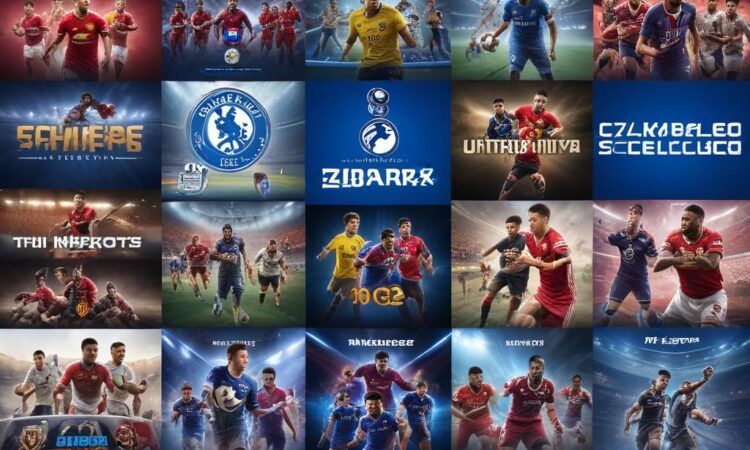The Rise of Esports in Traditional Sports Organizations: Exploring the Growing Trend
The world of esports has witnessed a meteoric rise in recent years, captivating a global audience with its thrilling competition and innovative gameplay. While the esports industry has traditionally been dominated by dedicated esports organizations, a fascinating trend has emerged \u2013 the involvement of traditional sports organizations like football clubs and basketball teams. This phenomenon has injected a fresh wave of excitement into the esports scene and opened up new avenues for both traditional and esports entities to engage with a wider demographic.
From Football Fields to Virtual Battlefields: Why Are Traditional Sports Organizations Embracing Esports?
The integration of esports into the realm of traditional sports may seem like an unexpected pairing, but it is driven by a confluence of factors that make it a compelling and mutually beneficial strategy:
-
Reaching a New Generation of Fans:
Traditional sports organizations are acutely aware of the changing demographics of their audience. The younger generation, heavily invested in technology and digital entertainment, is increasingly drawn to esports. By entering the esports arena, these organizations can tap into this vibrant and growing community, expanding their fanbase and securing their future relevance.
-
Diversifying Revenue Streams:
The esports industry is generating substantial revenue through sponsorships, merchandise, and media rights. Traditional sports organizations see esports as a lucrative opportunity to diversify their income streams and tap into the thriving esports economy. Moreover, the global reach of esports allows them to expand their brand presence to international markets.
-
Leveraging Existing Infrastructure:
Traditional sports organizations possess a wealth of resources and infrastructure that can be readily applied to esports. From marketing expertise to fan engagement strategies, these organizations have established systems that can be adapted to the esports realm, reducing the learning curve and accelerating their success.
-
Strengthening Brand Identity:
Esports engagement allows traditional sports organizations to showcase their brand identity to a new audience. It provides an avenue to connect with a younger demographic that may not be familiar with their traditional sporting activities. By associating themselves with esports, they can reinforce their modern and forward-thinking image, appealing to a broader range of consumers.
Case Studies: Examples of Traditional Sports Organizations Embracing Esports
Numerous traditional sports organizations have made significant inroads into the esports world, demonstrating the growing trend and its potential for success:
Football Clubs:
- Manchester United: One of the world’s most renowned football clubs, Manchester United established its own esports team in 2019. They compete in various titles, including FIFA and Rocket League, and have become a major player in the esports scene.
- FC Schalke 04: The German football club FC Schalke 04 has been actively involved in esports since 2016. Their League of Legends team has achieved remarkable success, winning the European Championship in 2017.
- Paris Saint-Germain: PSG, a leading French football club, has invested heavily in esports. They compete in titles like FIFA, Rocket League, and Fortnite, and have built a dedicated esports division.
Basketball Teams:
- Philadelphia 76ers: The Philadelphia 76ers were among the first NBA teams to enter esports. Their team, named \”Team Dignitas,\” competes in titles like League of Legends and Fortnite, showcasing the growing interest of basketball teams in esports.
- Golden State Warriors: The reigning NBA champions, the Golden State Warriors, established their own esports team in 2018. They compete in NBA 2K, demonstrating the growing appeal of esports among professional basketball organizations.
- Miami Heat: The Miami Heat have also embraced esports, partnering with the esports organization \”Misfits Gaming\” to create a joint venture. This partnership highlights the potential for collaborative ventures between traditional and esports entities.
Challenges and Considerations for Traditional Sports Organizations Entering Esports
While the benefits of esports engagement are numerous, traditional sports organizations must also navigate a few key challenges:
-
Understanding the Esports Landscape:
The esports landscape is dynamic and rapidly evolving, demanding a deep understanding of the industry’s unique complexities. Organizations need to invest in research and expertise to navigate this space effectively.
-
Building a Strong Esports Team:
Creating a successful esports team requires finding and cultivating talented players, coaches, and support staff. Organizations need to prioritize player development and provide the necessary resources to ensure team success.
-
Engaging with the Esports Community:
Traditional sports organizations need to connect with the esports community and build authentic relationships with players, fans, and other stakeholders. Failure to foster a genuine connection can lead to skepticism and resistance from the esports community.
-
Adapting to the Digital Environment:
Esports thrive in the digital world, requiring organizations to adapt their marketing strategies and communication approaches to engage effectively with online audiences.
Future of Esports in Traditional Sports Organizations: A Symbiotic Relationship
The integration of esports into the realm of traditional sports is a testament to the evolving landscape of sports entertainment. Traditional sports organizations are recognizing the immense potential of esports to attract new audiences, diversify revenue streams, and strengthen their brand identity. This synergistic relationship is set to continue, shaping the future of sports entertainment for generations to come.
As esports continues to grow and evolve, we can expect to see even more traditional sports organizations embracing the digital realm. This trend promises to create new and exciting opportunities for both traditional and esports entities, fostering innovation and expanding the reach of sports entertainment worldwide.

